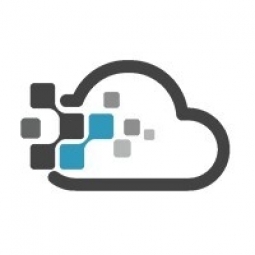Technology Category
- Analytics & Modeling - Digital Twin / Simulation
- Infrastructure as a Service (IaaS) - Cloud Computing
Applicable Industries
- Automotive
- Oil & Gas
Applicable Functions
- Product Research & Development
- Quality Assurance
Use Cases
- Manufacturing Process Simulation
- Time Sensitive Networking
Services
- Cloud Planning, Design & Implementation Services
- Testing & Certification
About The Customer
Modine Manufacturing Company is an international company that designs, manufactures, and tests heat transfer solutions. They serve a wide range of industries, including automotive, agriculture equipment, and construction equipment. A significant portion of Modine’s business is in heating, ventilation, and air conditioning (HVAC). They focus on designing heat transfer components and systems, providing products like radiators, charge-air coolers for diesel engines, oil coolers, exhaust gas recirculation coolers, condensers and evaporators for air-conditioning systems, and battery coolers for electric vehicles. With fiscal 2016 revenues of $1.4 billion, Modine is a global company headquartered in Racine, Wisconsin, with operations in North America, South America, Europe, Asia, and Africa.
The Challenge
Modine Manufacturing Company, a global provider of heat transfer solutions, was facing challenges with their computational fluid dynamics (CFD) simulations. Their workstation computing systems in North America were relatively large but lacked an in-house grid computing environment. These workstations, with 10 cores and 64 gigabytes of memory, were constrained by memory and computing bandwidth, limiting the amount of parallelization they could use in their simulations. Modine Germany had a grid updated every five years, with 32 processors and plans for expansion. However, the company wanted to eliminate assumptions in their models, which added complexity and increased the model size. They also wanted to do more transient simulations, which are complex models that take a long time to run. Running a transient simulation on ten cores took them about three months, which was practically impossible. They realized they didn’t have the computing power to quickly investigate methodologies without purchasing their own computing equipment, which would have significantly delayed their development.
The Solution
Modine Manufacturing Company turned to Rescale, a cloud computing solution, to overcome their challenges. Rescale was recommended to them by other CFD engineers at a STAR-CCM+ seminar due to its ease of use. Rescale's graphical user interface (GUI) allowed Modine's engineers to easily upload files, run simulations, and download results without any coding. Rescale also provided upfront cost per hour and allowed Modine to set limits on run time to prevent going over budget. Modine used Rescale's free trial to run a quick transient simulation and compare how long it would take to run on Rescale. They were able to run a large model that would have taken three months to run as a transient model in just a few days on Rescale. Modine purchased STAR-CCM+’s Power On Demand licensing, which gave them unlimited cores per hour. They ran transient conjugate heat transfer CFD on about 500 cores in a job using Onyx and Nickel core types.
Operational Impact
Quantitative Benefit

Case Study missing?
Start adding your own!
Register with your work email and create a new case study profile for your business.
Related Case Studies.

Case Study
Taking Oil and Gas Exploration to the Next Level
DownUnder GeoSolutions (DUG) wanted to increase computing performance by 5 to 10 times to improve seismic processing. The solution must build on current architecture software investments without sacrificing existing software and scale computing without scaling IT infrastructure costs.

Case Study
Remote Wellhead Monitoring
Each wellhead was equipped with various sensors and meters that needed to be monitored and controlled from a central HMI, often miles away from the assets in the field. Redundant solar and wind generators were installed at each wellhead to support the electrical needs of the pumpstations, temperature meters, cameras, and cellular modules. In addition to asset management and remote control capabilities, data logging for remote surveillance and alarm notifications was a key demand from the customer. Terra Ferma’s solution needed to be power efficient, reliable, and capable of supporting high-bandwidth data-feeds. They needed a multi-link cellular connection to a central server that sustained reliable and redundant monitoring and control of flow meters, temperature sensors, power supply, and event-logging; including video and image files. This open-standard network needed to interface with the existing SCADA and proprietary network management software.

Case Study
Refinery Saves Over $700,000 with Smart Wireless
One of the largest petroleum refineries in the world is equipped to refine various types of crude oil and manufacture various grades of fuel from motor gasoline to Aviation Turbine Fuel. Due to wear and tear, eight hydrogen valves in each refinery were leaking, and each cost $1800 per ton of hydrogen vented. The plant also had leakage on nearly 30 flare control hydrocarbon valves. The refinery wanted a continuous, online monitoring system that could catch leaks early, minimize hydrogen and hydrocarbon production losses, and improve safety for maintenance.

Case Study
Integral Plant Maintenance
Mercedes-Benz and his partner GAZ chose Siemens to be its maintenance partner at a new engine plant in Yaroslavl, Russia. The new plant offers a capacity to manufacture diesel engines for the Russian market, for locally produced Sprinter Classic. In addition to engines for the local market, the Yaroslavl plant will also produce spare parts. Mercedes-Benz Russia and his partner needed a service partner in order to ensure the operation of these lines in a maintenance partnership arrangement. The challenges included coordinating the entire maintenance management operation, in particular inspections, corrective and predictive maintenance activities, and the optimizing spare parts management. Siemens developed a customized maintenance solution that includes all electronic and mechanical maintenance activities (Integral Plant Maintenance).









